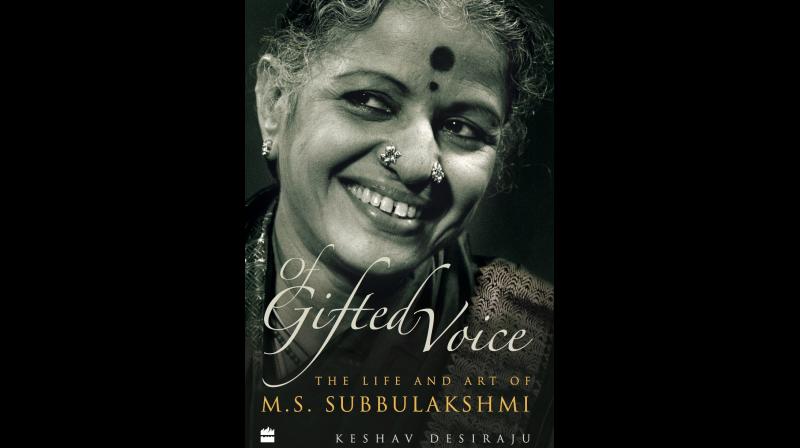Chronicling M.S. Subbulakshmi

M.S. Subbulakshmi’s life was one of extraordinary achievement. Although she was portrayed in many ways — as a musician who sought and achieved an all-India appeal; a philanthropist and supporter of noble causes; an icon of style; a woman of piety and devotion; and a friend and associate of the good and the great — she was first and foremost a classical vocalist of the highest rank, of unmatched gifts, who lives on in the musical history of India.
Keshav Desiraju’s biography of M.S. Subbulakshmi attempts, with warmth and keen-eyed perception, to understand the music, the history, the artiste and her incomparable presence.
Of Gifted Voice attempts, with warmth and keen-eyed perception, to understand the music, the history, the artiste and her incomparable presence. It describes how music came to be performed in concerts; the impact the gramophone, the radio and the talkie had on music; the decline of the traditional performing families; and the appearance of women on public platforms. The book also goes into Subbulakshmi’s brush with films as well as her concert style and that of her celebrated contemporaries.
“Though her story has often been told, we know little of the woman behind the image and the musician behind the public persona,” says author Keshav Desiraju.
“I wanted to recognise her identity as a diva, as one of the 20th century’s greatest performers.” According to him, Subbulakshmi was consistently denied the identity of ‘Classical vocalist of highest rank.’ “This is partly the consequence of her own manner, but it is mostly the result of the image that was sought, built around and projected for her. And as I wrote this book, this is what I hoped to redress,” explains the author. The biography goes beyond the public persona and reveals much more about MS, as she was popularly known.
“I wrote the bulk of the text over 12 months, but large parts of it were in my head for much longer,” says Desiraju adding, “I was struck by the humbleness of her background, and at quite how monstrous a devadasi’s life could have been.”
Talking about his fondest memory in the book, he picks the meeting with Ravi Shankar. “I was present at the meeting and always knew that I had to write about it,” he shares.
The 15 chapters include extensive material on the background and context of Subbulakshmi’s times, and this seems somewhat of a digression from the subject.
“I’ve always enjoyed reading biographies, and have always appreciated the idea that you can tell the story both of a person and the age in which she lived. And that’s what I tried to do here,” explains Desiraju.
“This may sound strange,” he adds, “but I really enjoyed writing the appendices, the glossary, the notes to songs, the dramatis personae. And I enjoyed writing the last chapter, A Life.”
“Though her story has often been told, we know little of the woman behind the image and the musician behind the public persona. I wanted to recognise her identity as a diva, as one of the 20th century’s greatest performers,”
-Keshav Desiraju, author

